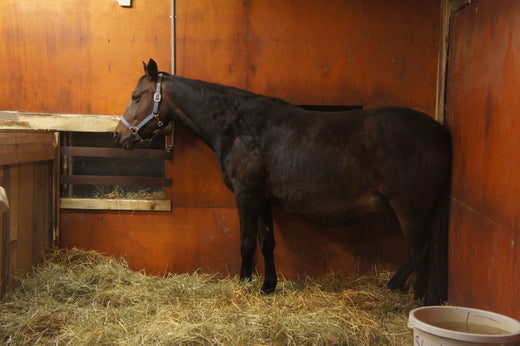
A horse's toothache
Written by DVM, PhD, MSc Ann-Helena Hokkanen.
Dental diseases are common causes of pain in horses. Several different behavioral changes can indicate that a horse is experiencing toothache.
In particular, changes in eating behavior and the horse's attitude to the drool often indicate pain in the mouth. In a Finnish study, the results of a dental examination performed by a veterinarian were compared with the horse's behavior reported by the owner.
The researchers found that horses and ponies that were found to have at least one potentially painful change in their molars exhibited more pain-reporting behaviors than animals that did not have any potentially painful changes in their teeth.
A horse or pony with a toothache can:
- turn head while eating,
- move hay in his mouth,
- take breaks while eating
- to drop hay from his mouth
- wash hay in water
- avoid drinking cold water
- resist putting the drool on
- open his mouth and shake his head with the drooler
- shy away from touching his head
The clarity and number of changes in the animal's behavior that indicate pain are always individual, because many different factors affect the experience of pain and its intensity. In some horses and ponies, pain in the tooth caused numerous different behavioral changes, while in some dental problems only minor changes were associated, especially in eating behavior.
It is therefore important to regularly stop to observe the eating of the horse under your care, so that it would be easier to notice the changes. The researchers also found that the behavior of ponies and Icelandic horses telling about toothache is often more subtle than that of horses. Therefore, even small changes in behavior related to possible dental problems in ponies should be taken seriously.
The horse's mouth and teeth must be examined by a veterinarian regularly. Therefore, always follow the instructions given by your own veterinarian about the appropriate inspection interval.
Reference: Laukkanen T, Karma L, Virtala AM, Mykkänen A, Pehkonen J, Rossi H, Tuomola K, Raekallio M. Behavioral Signs Associated With Equine Cheek Tooth Findings. J Equine Vet Sci. 2023 Feb;121:104198. doi: 10.1016/j.jevs.2022.104198. Epub 2022 Dec 23. PMID: 36566909. https://pubmed.ncbi.nlm.nih.gov/36566909/
